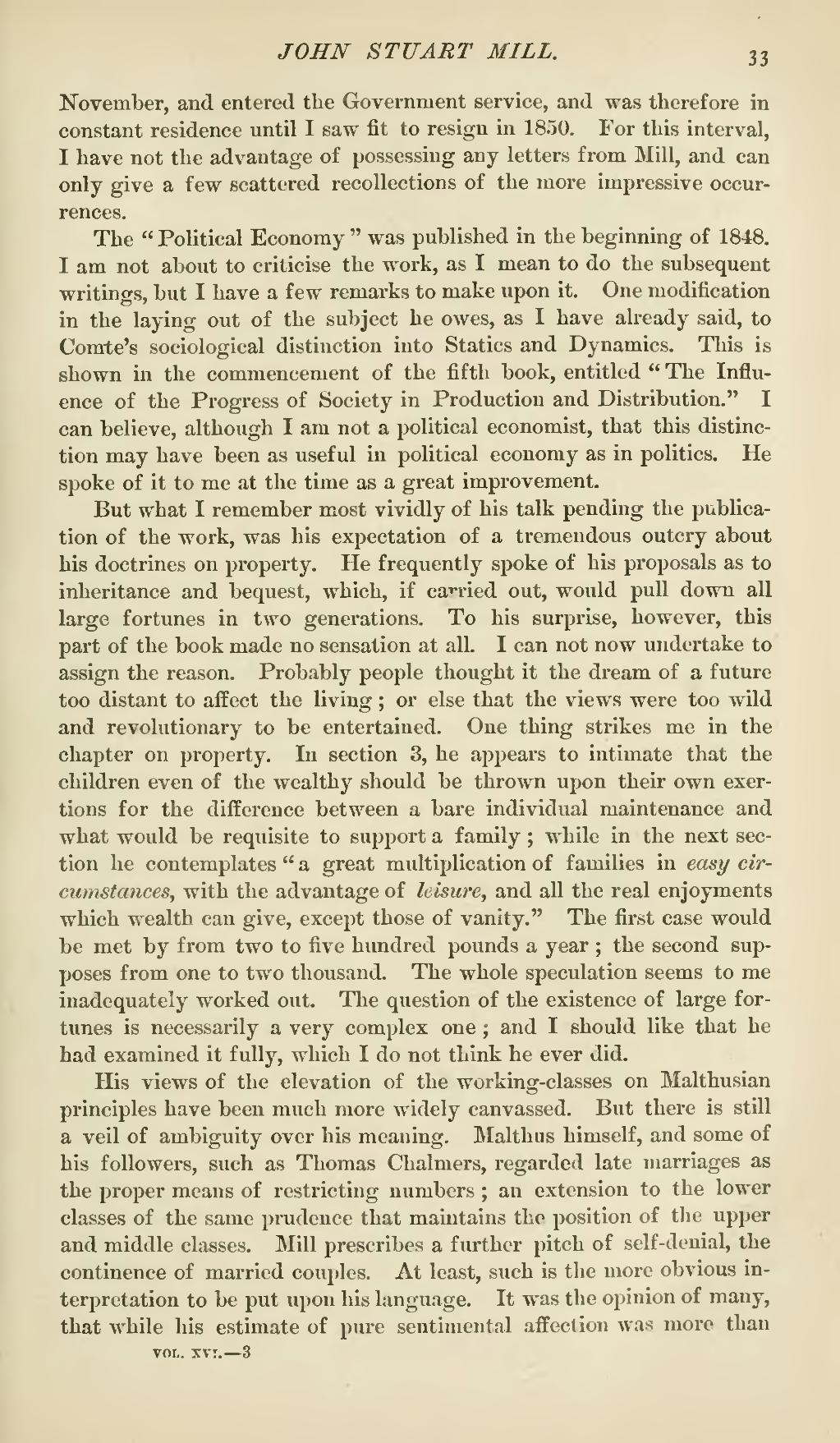November, and entered the Government service, and was therefore in constant residence until I saw fit to resign in 1850. For this interval, I have not the advantage of possessing any letters from Mill, and can only give a few scattered recollections of the more impressive occurrences.
The "Political Economy" was published in the beginning of 1848. I am not about to criticise the work, as I mean to do the subsequent writings, but I have a few remarks to make upon it. One modification in the laying out of the subject he owes, as I have already said, to Comte's sociological distinction into Statics and Dynamics. This is shown in the commencement of the fifth book, entitled "The Influence of the Progress of Society in Production and Distribution." I can believe, although I am not a political economist, that this distinction may have been as useful in political economy as in politics. He spoke of it to me at the time as a great improvement.
But what I remember most vividly of his talk pending the publication of the work, was his expectation of a tremendous outcry about his doctrines on property. He frequently spoke of his proposals as to inheritance and bequest, which, if carried out, would pull down all large fortunes in two generations. To his surprise, however, this part of the book made no sensation at all. I can not now undertake to assign the reason. Probably people thought it the dream of a future too distant to affect the living; or else that the views were too wild and revolutionary to be entertained. One thing strikes me in the chapter on property. In section 3, he appears to intimate that the children even of the wealthy should be thrown upon their own exertions for the difference between a bare individual maintenance and what would be requisite to support a family; while in the next section he contemplates "a great multiplication of families in easy circumstances, with the advantage of leisure, and all the real enjoyments which wealth can give, except those of vanity." The first case would be met by from two to five hundred pounds a year; the second supposes from one to two thousand. The whole speculation seems to me inadequately worked out. The question of the existence of large fortunes is necessarily a very complex one; and I should like that he had examined it fully, which I do not think he ever did.
His views of the elevation of the working-classes on Malthusian principles have been much more widely canvassed. But there is still a veil of ambiguity over his meaning. Mai thus himself, and some of his followers, such as Thomas Chalmers, regarded late marriages as the proper means of restricting numbers; an extension to the lower classes of the same prudence that maintains the position of the upper and middle classes. Mill prescribes a further pitch of self-denial, the continence of married couples. At least, such is the more obvious interpretation to be put upon his language. It was the opinion of many, that while his estimate of pure sentimental affection was more than

